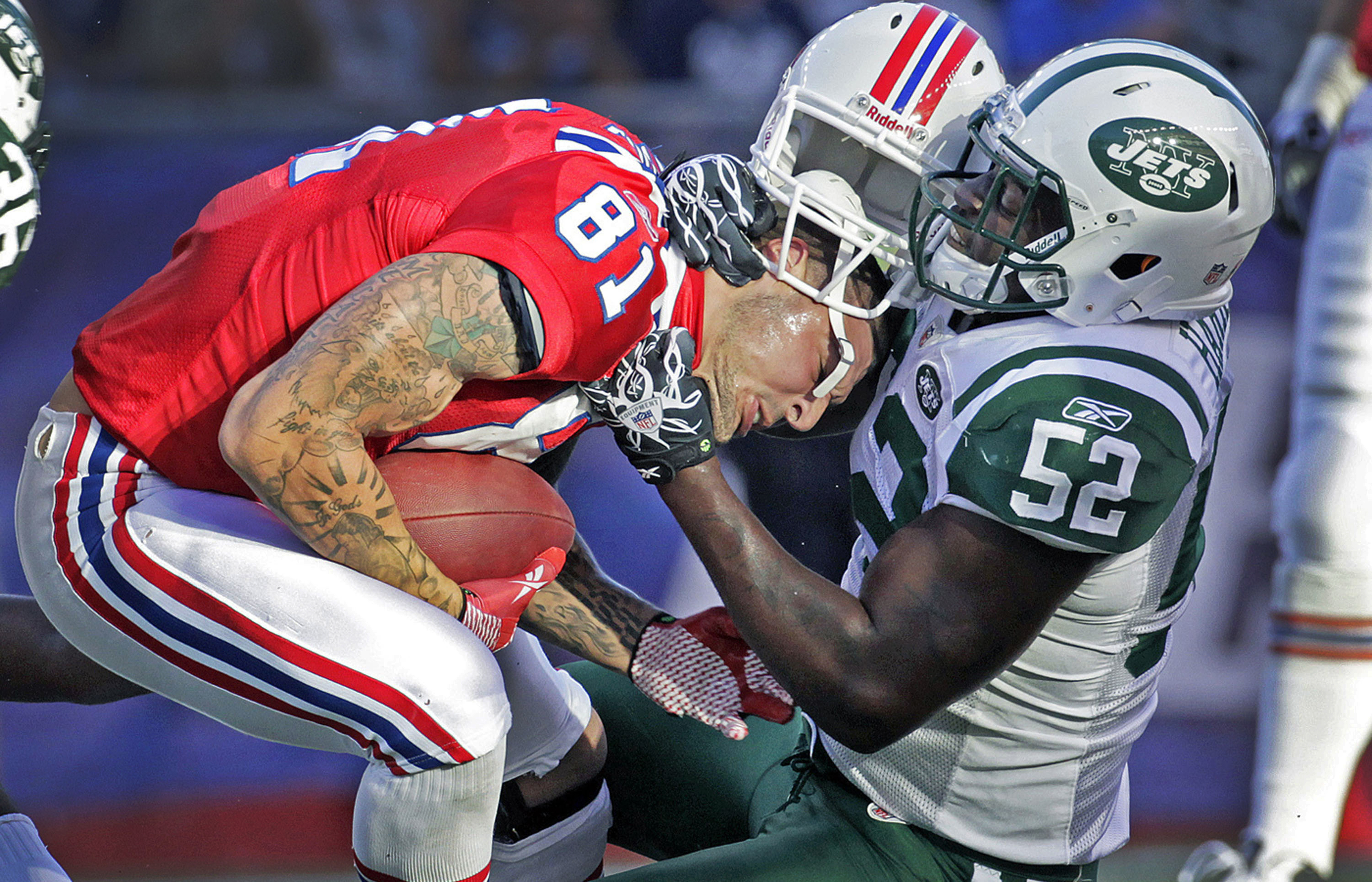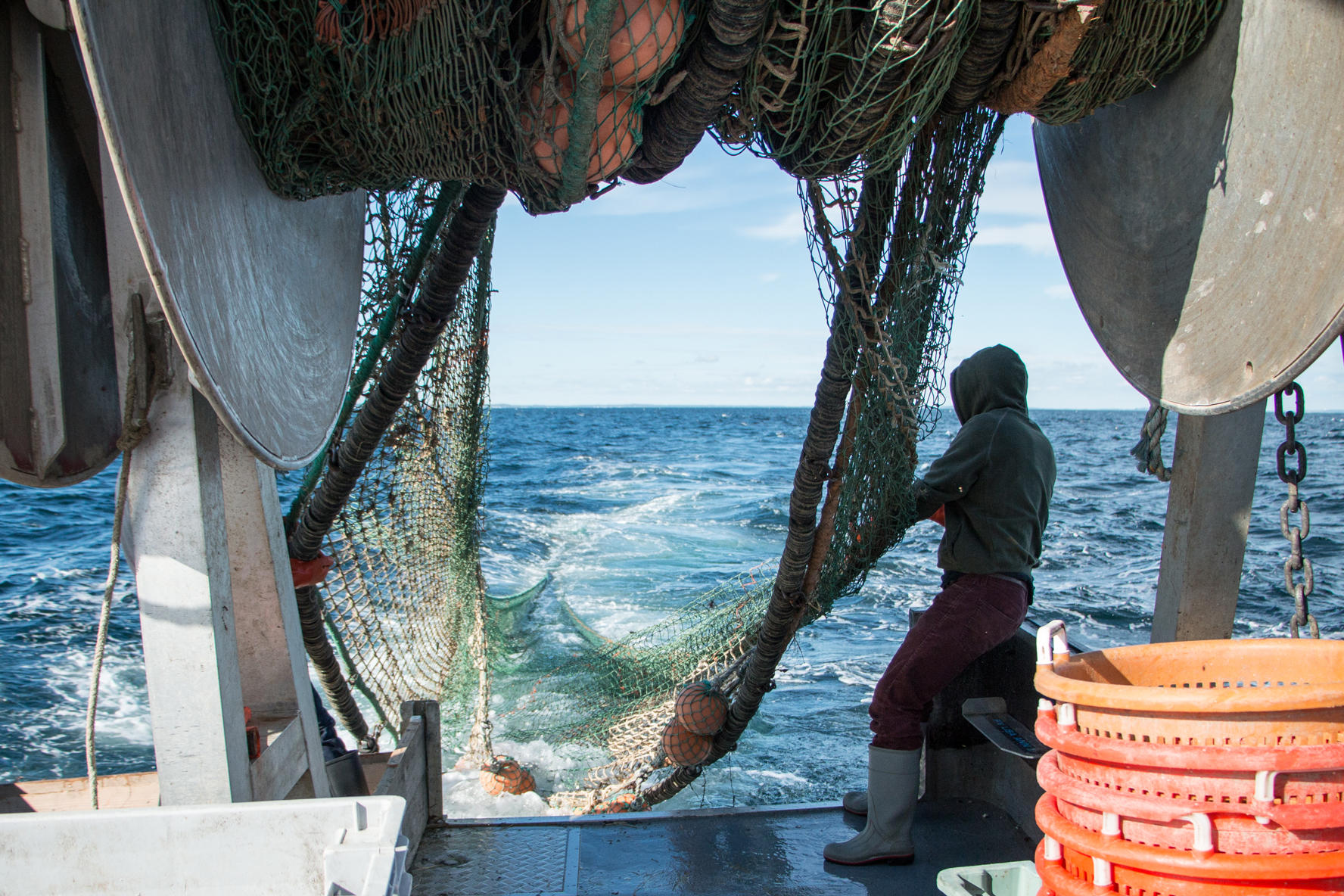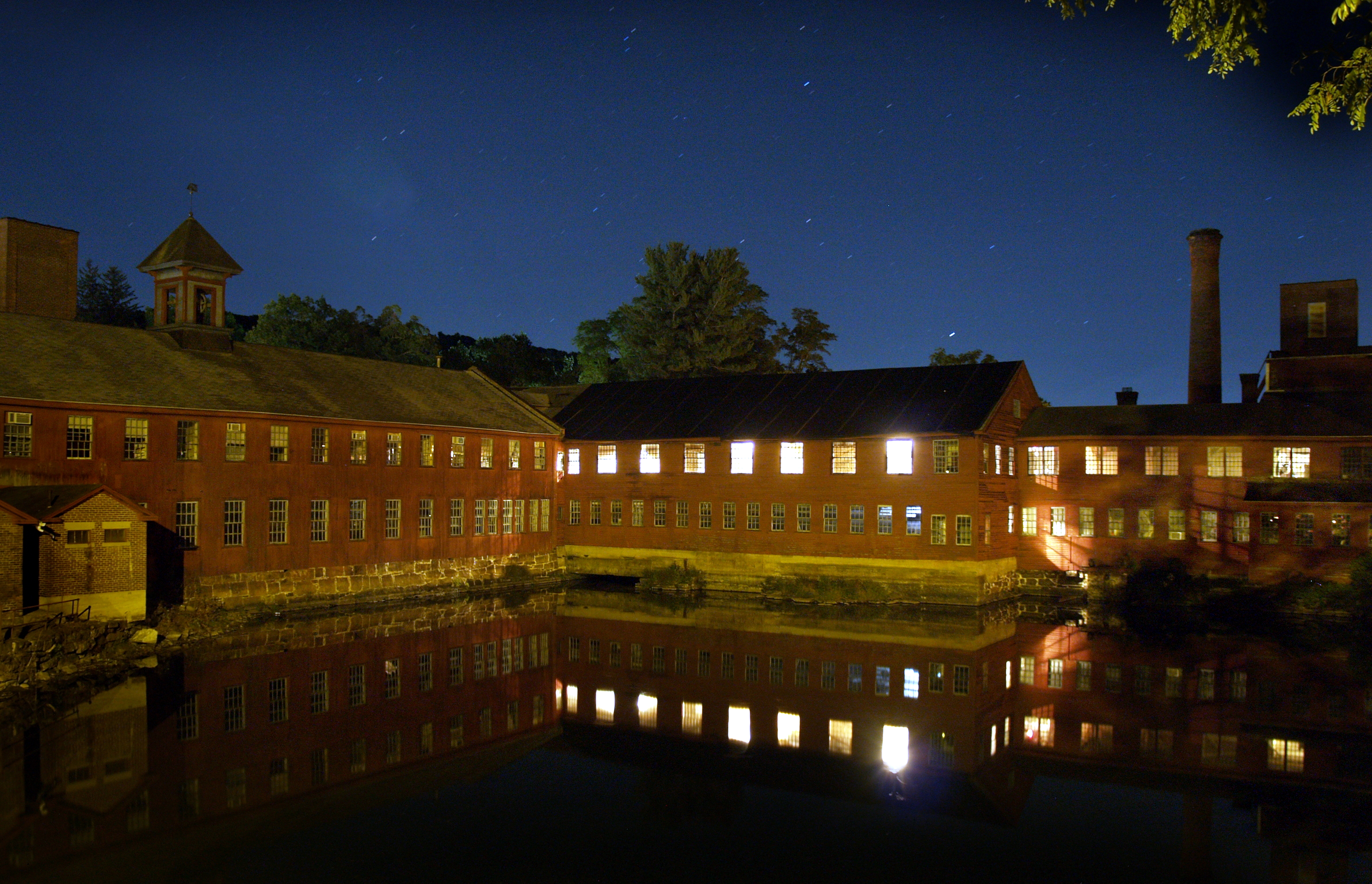Episode 170: How Fishing Regulations Hurt Fishermen; The Life And Death Of A Football Star

Patriots tight end Aaron Hernandez (left) is taken down by the Jets David Harris after a first quarter catch. Hernandez loses his helmet in the process. (Jim Davis/Boston Globe)
This week on NEXT, we talk about the life and death of former Patriots tight end Aaron Hernandez and how his brain is helping scientists discover the long-term effects of head injuries. And fishing industry regulations can make it difficult for small-scale fishermen to make a living. Plus, a new book explores how objects in an abandoned mill building could tell the story of a town.
What Aaron Hernandez Can Teach Us About the Football Industry

Aaron Hernandez. (Aaron Frutman/Flickr/Creative Commons)
The life of Aaron Hernandez could have been a storybook New England tale. He was born and raised in Bristol, Connecticut and rose to fame as a tight end for the New England Patriots. But after just three seasons in the NFL, he was put on trial for multiple murders and sentenced to life in prison. At 27 years old, Hernandez committed suicide at a correctional center in Massachusetts.
A six-part Spotlight series from the Boston Globe explores his life, death, and legacy in articles and a podcast. The series investigates what his death can teach us about the football industry and the long-term effects of the sport on players’ brains.
We speak with Bob Hohler, an investigative sports reporter for the Boston Globe and part of the team responsible for the Spotlight Series, ”Gladiator: Aaron Hernandez and Football Inc.”
Exploring How the “Fish Bill” Affects Small Businesses

Portland’s Gulf of Maine Research Institute has designed a trawl net that aims to target species that can still be profitable while avoiding cod. (Courtesy Gulf of Maine Research Institute)
The waters around New England once teemed with cod, but the story for the past few decades has been one of overfishing and decline. In 2010, a new set of regulations were put in place designed to protect the fish that are left. But these regulations have made it hard for small-scale fishermen to make a living. We explore the unintended consequences of conservation in the podcast “The Briny.”
Exploring the History of New England’s Mill Towns

Factory buildings in Collinsville, Connecticut. (Jonathan Lewis/Flickr, Creative Commons)
Many polluted rivers in New England are making a comeback; so are some of the old mills that polluted them in the first place. The mills are being turned into high-end lofts, artists spaces and modernized manufacturing sites. It’s this history and transformation that David Leff explores in a book of poetry called “The Breach: Voices Haunting a New England Mill Town.” Leff is no stranger to this issue: he’s the former deputy commissioner of the Connecticut Department of Environmental Protection and has lived for 30 years in one of these mill towns, where manufacturing is long gone, but the mill buildings still hang precariously over the edge of the Farmington River.
For more on how our industrial past influences our region in the present, check out the video of our live event at the International Festival of Arts and Ideas.
Also on the show this week:
About NEXT
NEXT is produced at Connecticut Public Radio
Host: John Dankosky
Producer: Morgan Springer
Digital Producer: Carlos Mejia
Senior Director: Catie Talarski
Contributors to this episode: Matt Frassica, Patrick Skahill, Karen Brown.
Music: Todd Merrell, “New England” by Goodnight Blue Moon, Binger and Dave Richardson.
New to NEXT? You can find every episode or one you missed within our archives.
We need your feedback! Send critiques, suggestions, questions, and ideas to next@ctpublic.org. Help us spread the word! If you like what you hear, rate and review us on iTunes.
Follow us on Twitter.
